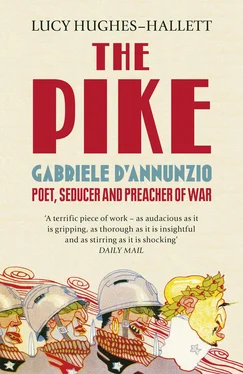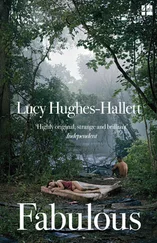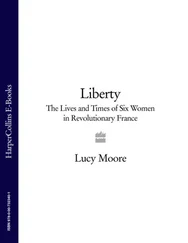D’Annunzio’s sense of homeland would become an important theme in his politics and his self-presentation – ‘I carry the soil of the Abruzzi on the soles of my feet,’ he wrote – but he certainly didn’t want to live there. In 1914 the Pescaran authorities offered to give him a house in recognition of his status as the region’s great man. He declined. He was by then bankrupt in Italy and amassing enormous debts in France too, but for him the Abruzzi was a philistine backwater and Pescara a place redolent of old age and gross, squalid sins. Despite professing the greatest affection for what he called ‘my Abruzzi’, he much preferred swindling hoteliers or sponging off his admirers to being confined to his homeland.

YOUTH
SING THE IMMENSE JOY … of being young,’ wrote the eighteen-year-old d’Annunzio. ‘Of biting the fruits of the earth/With sound, white voracious teeth.’ The clandestine nationalist movement which Giuseppe Mazzini had founded in the 1830s, and which eventually drove the Risorgimento, was called Young Italy, signalling that the new nation was to be, not an amalgam of the decrepit statelets it united, but a vigorous new entity. D’Annunzio would employ the same rhetoric once he began his political career, but he also prized youth for its own sake. And when he first arrived in Rome he could exult in being the youngest of his circle of friends and patrons.
That circle was ready. The night before he set out for Rome in November 1881, he wrote to Elda, pretending to complain about his precocious celebrity. ‘So, so many friends are waiting for me there, so many admirers. It’ll be a fearful bore for the first few days!’
He was registered at the university’s Faculty of Literature, he may even have attended a few lectures. But most of his energies were directed elsewhere. While he was still at school his first published stories had appeared in the Fanfulla della Domenica, whose editorial board included his mentor Nenciono and in whose pages Chiarini’s generous review of Primo Vere had been published. Another useful contact was a fellow Abruzzese, Edoardo Scarfoglio, poet and editor of the weekly paper Capitan Fracassa – irreverent, satirical, written by and aimed at the young. It was Scarfoglio who, yawning at his desk one day, had been so electrified by d’Annunzio’s first appearance in his office, and it was Scarfoglio with whom, the following summer, d’Annunzio would take off for Sardinia. With his already published volumes as calling-cards, d’Annunzio was soon a prolific freelance writer, selling poems, stories and occasional pieces to the journals springing up to feed the new market of educated middle-class readers.
Scarfoglio saw him as something from the pages of Chateaubriand or Victor Hugo, ‘the incarnation of the romantic ideal of the poet’. Another of his new acquaintances described his ‘chestnut locks, slick and scented with unguents’ (all his life he tended his body as carefully as any courtesan), and his ‘forehead as smooth and white as that of a small angel in a Church procession’. Before long he met Angelo Sommaruga, a risk-taking young impresario (who would soon be facing criminal charges for bribery and extortion). Sommaruga prided himself on his readiness to take on potentially scandalous new work. Soon he had d’Annunzio contributing to his magazine, and had undertaken to publish the young author’s next volume of verse, and his first collection of stories.
It was only just over a decade since the Pope had ceded his temporal power to Italy, and the Italian government, formerly based in Turin, had moved to Rome. For centuries the city had been a beautiful backwater. By 1881 it was an enormous building site. Olive groves and cow pastures and aristocratic gardens which had survived within the ancient walls for a millennium were being built over to accommodate the hordes of politicians and courtiers and civil servants and journalists and entrepreneurs who had descended on the newly booming city.
D’Annunzio lodged initially in an attic room in the heart of the city, between the Corso and the Piazza di Spagna. Close by was a brothel. When he returned home at night he would find its clients leaning against his front door or attempting to kick it in. Physically energetic, he went to the fencing schools in the mornings, and rode out into the countryside in the afternoons. He enjoyed his new friends. The Capitan Fracassa’s editorial office, facetiously nicknamed the ‘yellow drawing room’, was a single room above a beer shop, whose two windows gave onto a narrow alley. Its yellow wallpaper was covered with sketches and slogans left by the writers, artists, actors and politicians who came there to deliver their contributions and to pick up gossip. It was always buzzing with conversation, and when more space was needed the regulars would move on to the pastry shop nearby, where they had euphoric dawn breakfasts after the journal had been put to bed each week. Sommaruga’s Cronaca Bizantina had grander premises in the Palazzo Ruspoli and a more louche atmosphere. D’Annunzio described himself taking the stairs one morning ‘with great leaps’, hopeful of finding there ‘a magnificent, unlettered lady’ for whose favours he and some of his fellow writers were competing.
Michetti provided introductions. There were convivial evenings in the Caffè Roma or the elegant eighteenth-century Caffè Greco. The latter was a favourite meeting place for painters, several of whom would become d’Annunzio’s friends and the illustrators of his books. There were evenings with Paolo Tosti ‘in a mysterious apartment full of dark corridors’. Tosti would improvise at the piano for hours on end, while the singer Mary Tescher, in black lace and jet jewellery, sang Schubert’s Lieder and the guests lolled on sofas or on the floor. There were gatherings at the studio of the sculptor Moïse Ezekiel inside the ruins of the Baths of Diocletian. There were evenings in a house down by the Tiber where a ‘pleiade’ of young artists lived and worked. There were available women. D’Annunzio wrote to an Abruzzese friend boasting that he had inscribed some verses ‘on the white shoulders of a lascivious hetaera’. The tableau evoked is literary – d’Annunzio is modelling his self-image here on the cynical Vicomte de Valmont in Laclos’s Les Liaisons Dangereuses. But what he is describing is a visit to a brothel.
In the year and a half between his first arrival in Rome and his marriage, d’Annunzio wrote a sequence of poems in which lubriciousness alternates with a nauseous revulsion from sex. The sonnet L’Inconsapevole epitomises the mood. It describes luxuriant foliage fertilised by the rotting flesh of a corpse, and someone reaching out to pluck a flower like a bloody wound and finding his hand stung by a bitter poison. The poems triggered off a heated public debate about ‘indecency’. D’Annunzio boasted that in them he described sex in impeccable prosody and with a frankness unknown since the work of the Renaissance pornographer, Pietro Aretino.
He writes about letting his tired head fall at dawn on sloping breasts, about ‘ascending a furrow’ between feminine loins. He devotes a sonnet to the sensation, vividly described, of fellatio. He was pursuing pleasure both in bed and on paper, but he was not happy about it. ‘Atrocious sadness of the unclean flesh when the flame of desire is extinguished in icy disgust and no veil of love is cast around the inert nakedness.’ In his first novel he gives his own taste for Aretino to a wholly unsympathetic character, a debauched English milord. He told Scarfoglio that he was craving the bracing cold of an Abruzzese winter, that he was feeling jaded and seedy. ‘The strength of my barbarous youth lies slain in the arms of women,’ he wrote in Sed non Satiatus. For him the female was always somehow overripe. Youth was pure, clean, strong, barbaric, male.
Читать дальше













